How We’re Engaging
Given the importance of transportation, Link Nova Scotia is committed to collaboration. The first of its kind in Atlantic Canada, we sit in a unique position to work across jurisdictions and levels of government to take a comprehensive approach to transportation planning. In addition to public engagement and outreach, here are some of the ways we are working together with other organizations and levels of government.
Technical Advisory Board
Senior leaders from our Core Partner organizations and Associate Member CN. Each member owns, operates, or funds transportation in the region, and have existing plans, strategies, and studies that are important to, dependant on, or that will inform the Regional Transportation Plan.
Technical Working Group
Subject matter experts with backgrounds in transportation and land use planning, modelling, and engineering from our six Core Partners.
Province of Nova Scotia Collaboration Network
60+ provincial staff across departments whose work intersects with the JRTA.
Municipal Working Group
CAOs / Directors of Planning from the fifteen municipalities in the study area. This ensures that any planned growth is properly considered during plan development.
Focus Groups
Four external groups including community transit operators, community organizations, advocacy groups, industry, major employers, and educational institutions.
Community-led Outreach
As work on the plan relies heavily on demographic and travel behaviour data, first person accounts of experiences of those using the transportation system are an important layer to address systemic biases that have contributed to inequity in past transportation-related decision making.
We are supporting trusted, community-rooted organizations that are already working in areas where transportation acts as an enabler or barrier for their members/clients. These organizations will be the hosting a series of listening sessions to gather first person accounts and perspective on transportation issues.
The JRTA provided financial support to these organizations to facilitate this work, including compensation for participants:
- One North End Community Economic Development Society, working with African Nova Scotian youth
- YWCA Halifax, working with Newcomer and at-risk women
- OSO Planning and Design, working with Millbrook First Nation
- Mi’kmaw Native Friendship Centre, working with Urban Indigenous people
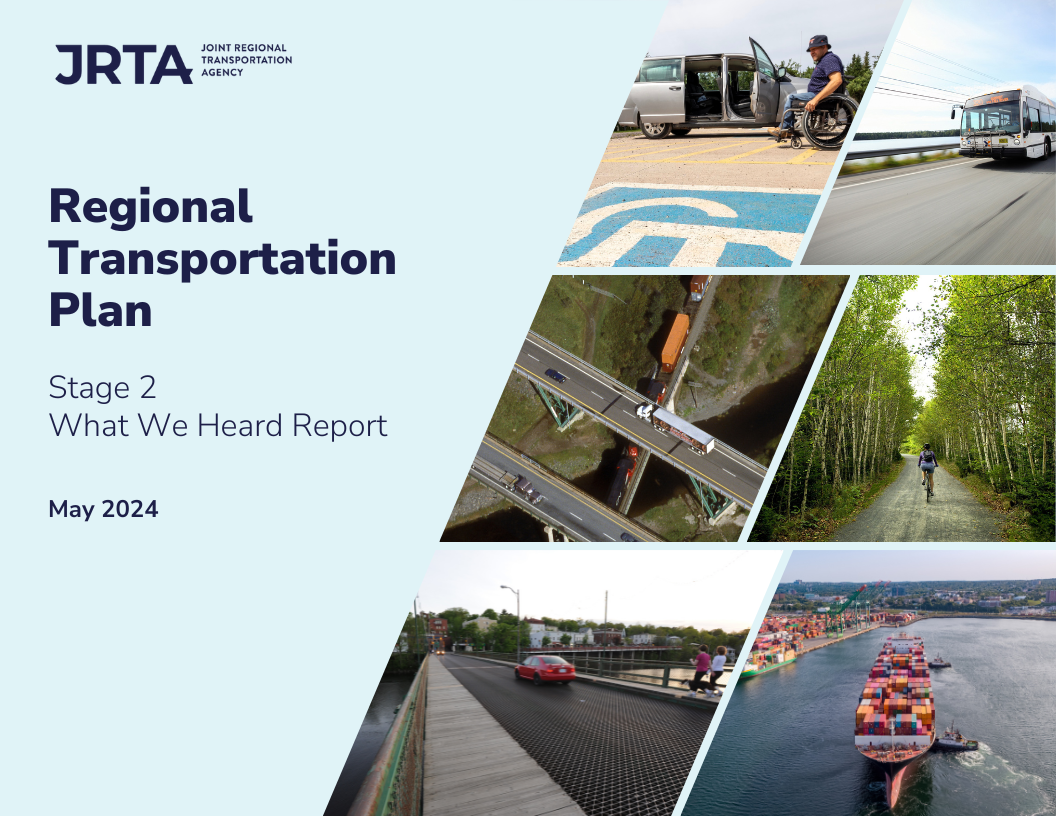
What We Heard
Our Stage 2 What We Heard Report is now available. Learn more about public engagement activities during Stage 2, including community-led outreach efforts, and read a summary of what we heard from you in-person, online, and during our virtual session.
Engagement Stages
Stage 1
May-June 2023
Introduce the JRTA and the Regional Transportation Plan.
- 13 pop-ups
- Online survey
- Focus and working group meetings
- What we Heard Report
Stage 2
Nov 2023-March 2024
Finalize the plan’s Vision, Goals, and Principles and report back on plan progress to date.
- 12 drop-ins
- Online survey
- Virtual information session
- Focus and working group meetings
- What we Heard Report
Public Information Boards
During the last two weeks of February 2024, the JRTA team was in communities sharing an update on our work to date on the plan. Here is the information we’ve been sharing during those sessions.
Click here for a PDF version of the information.
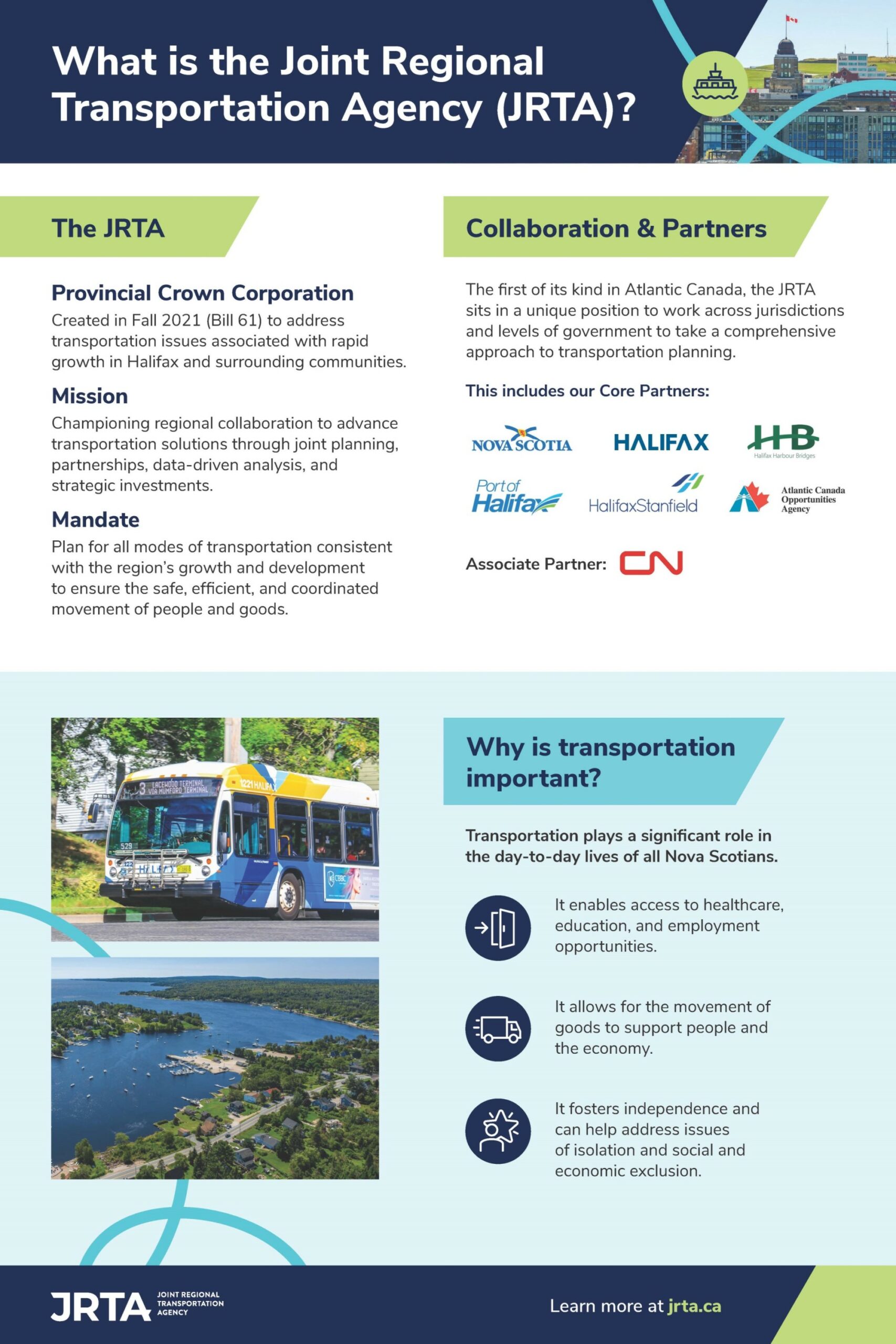
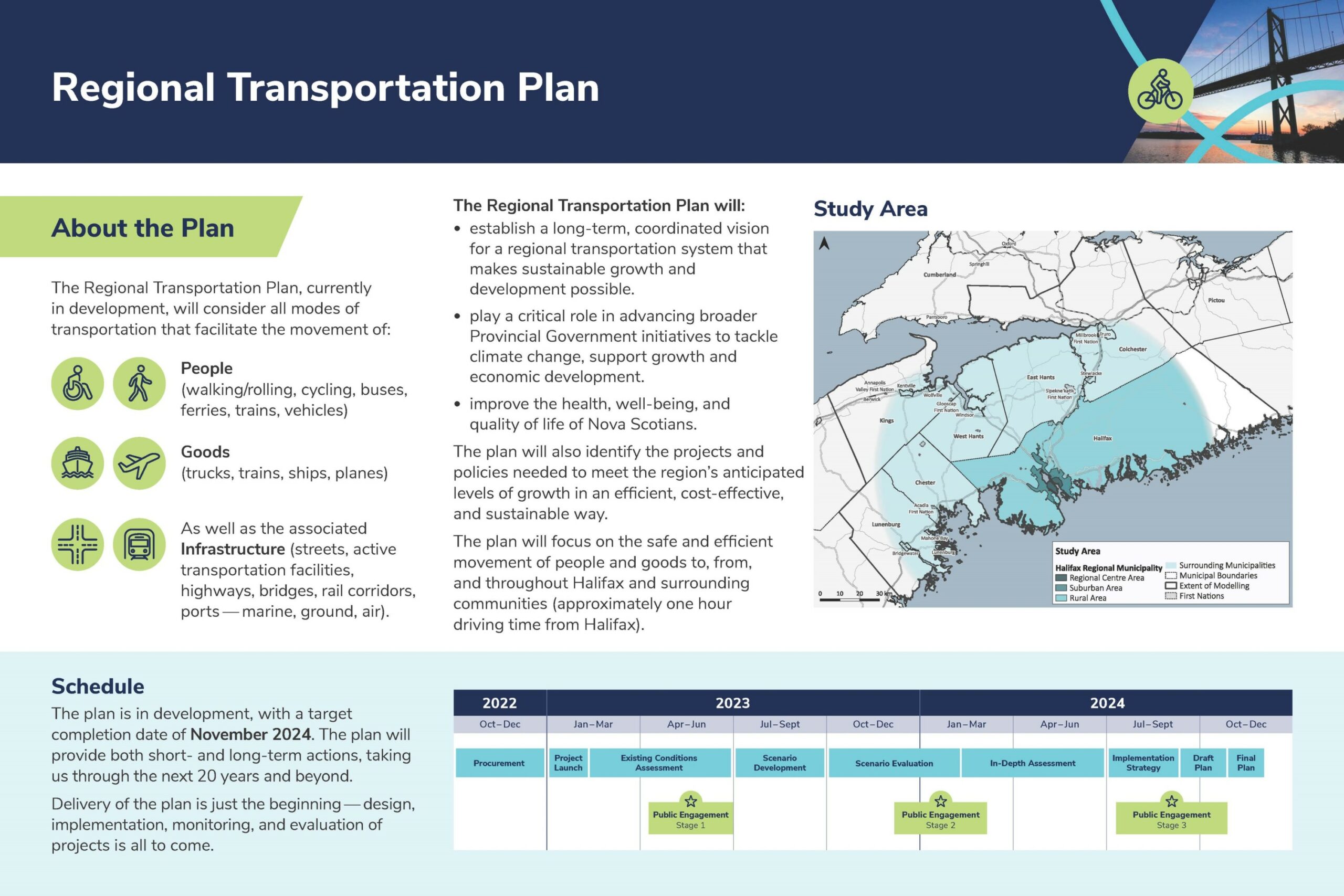
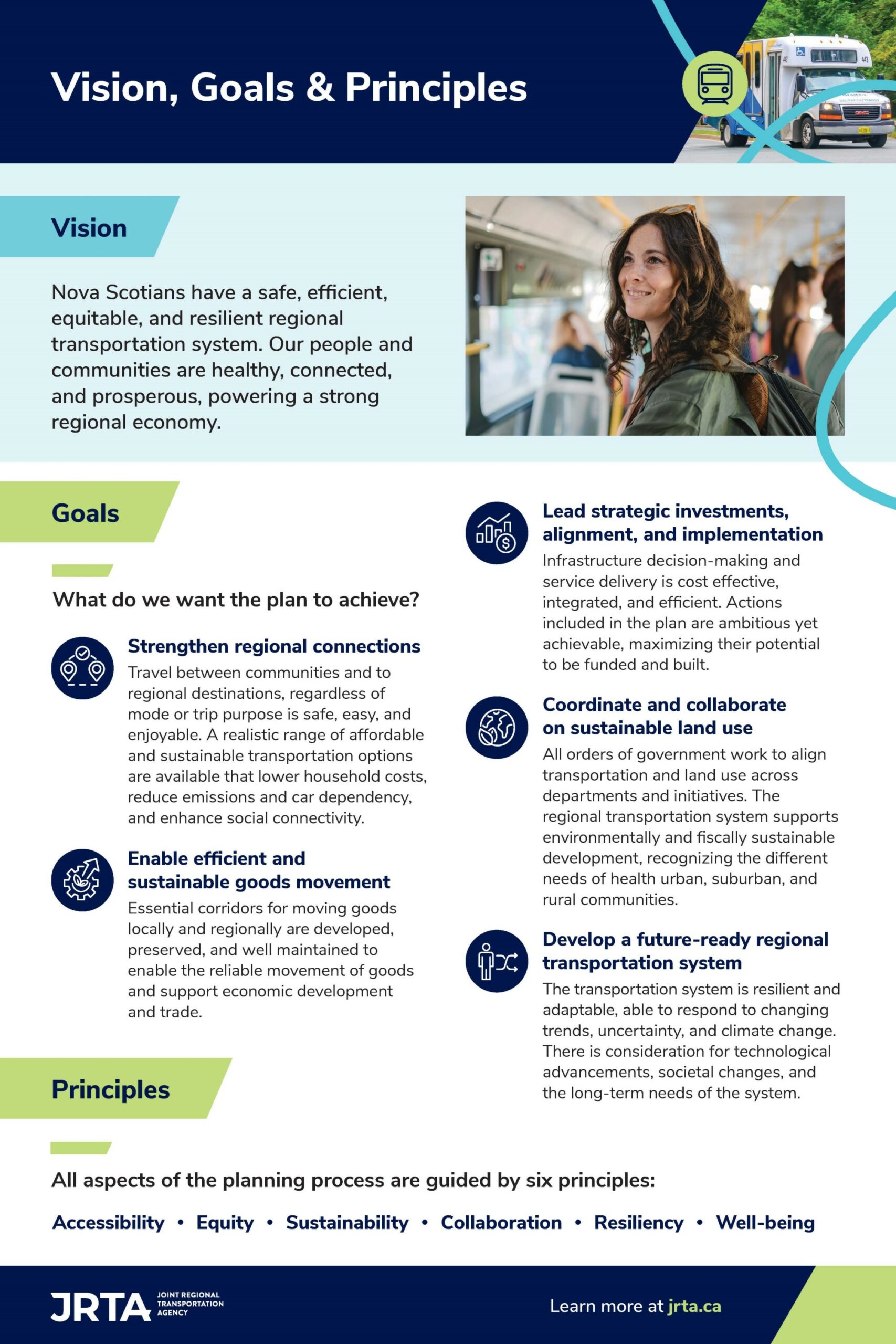
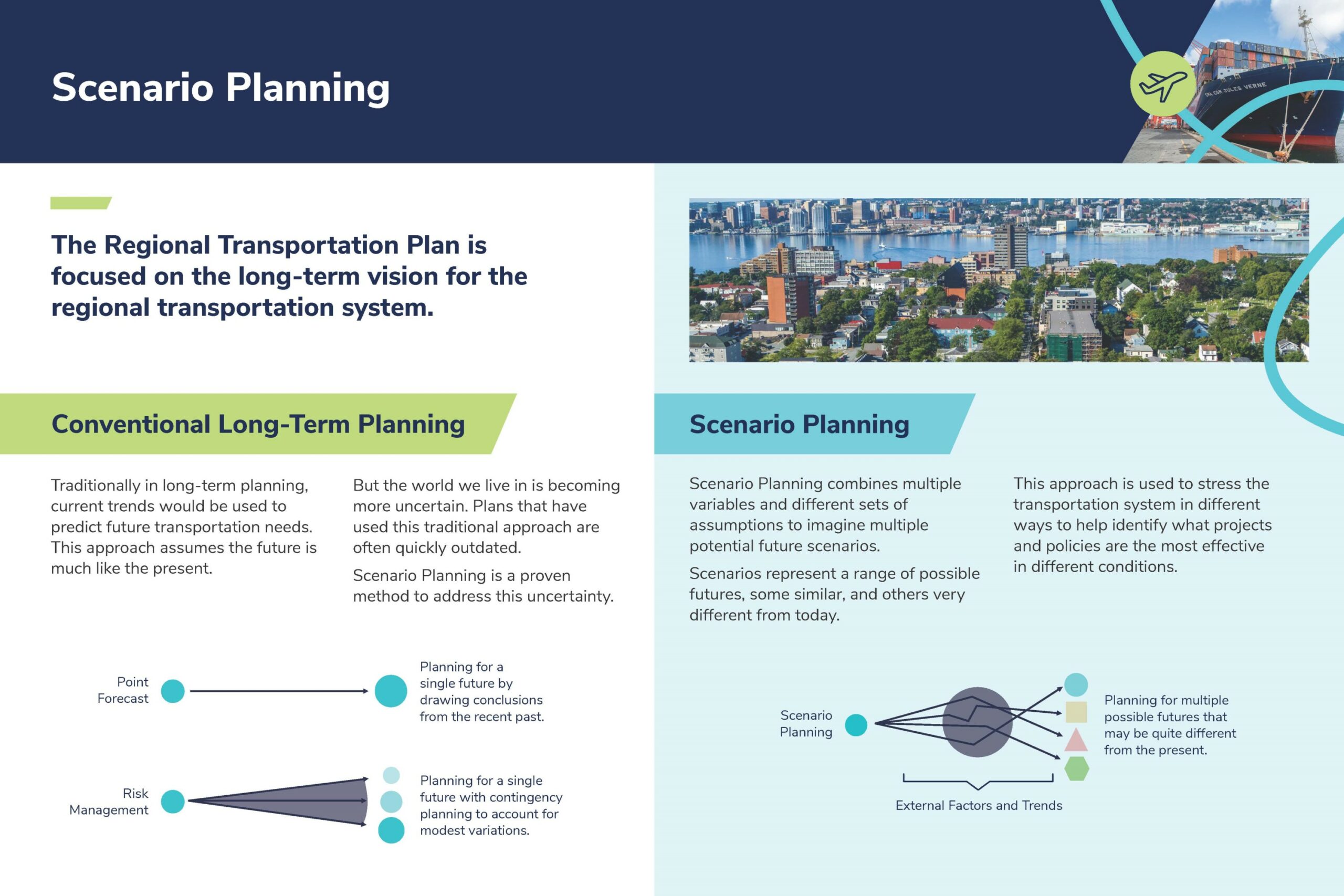
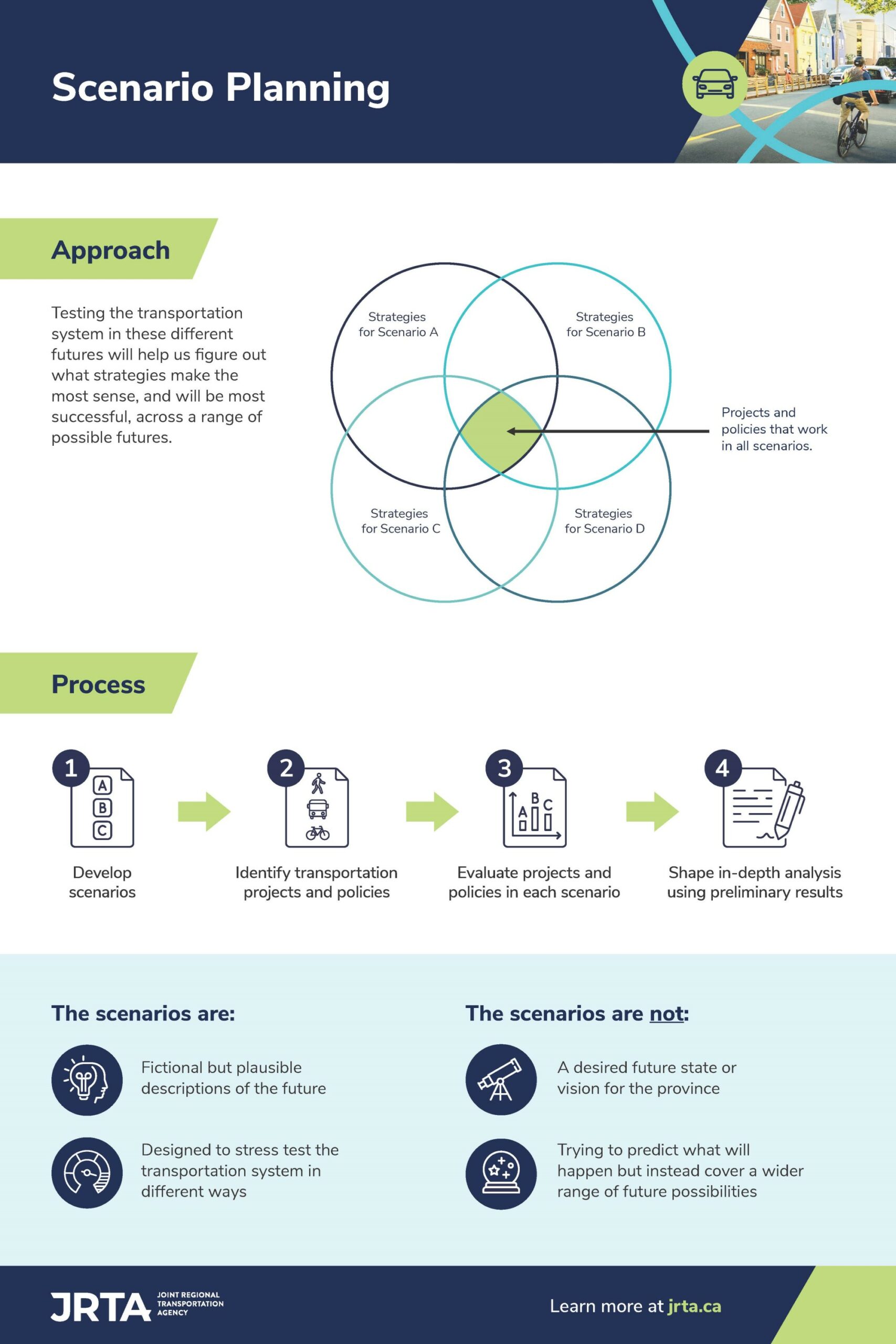
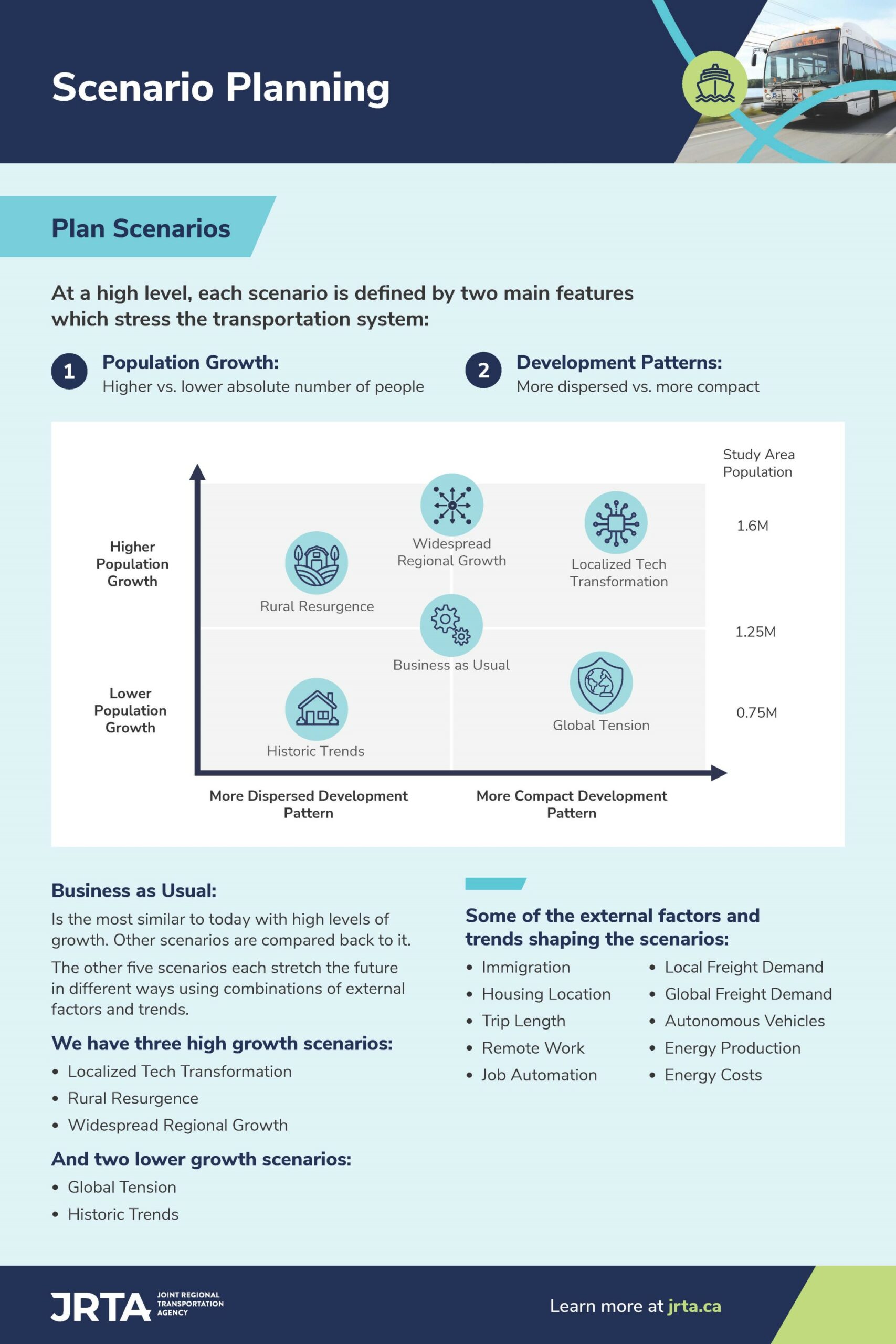
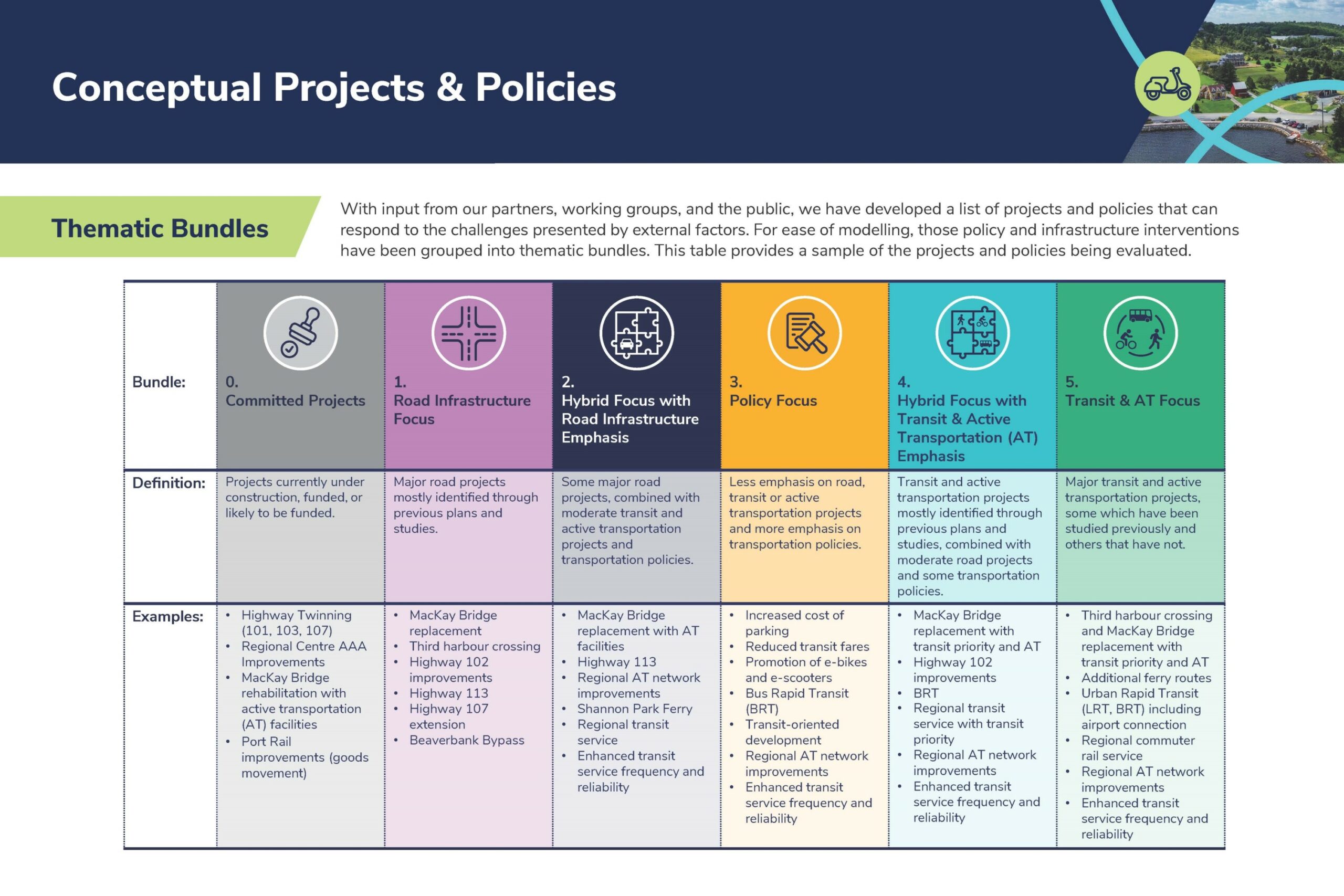
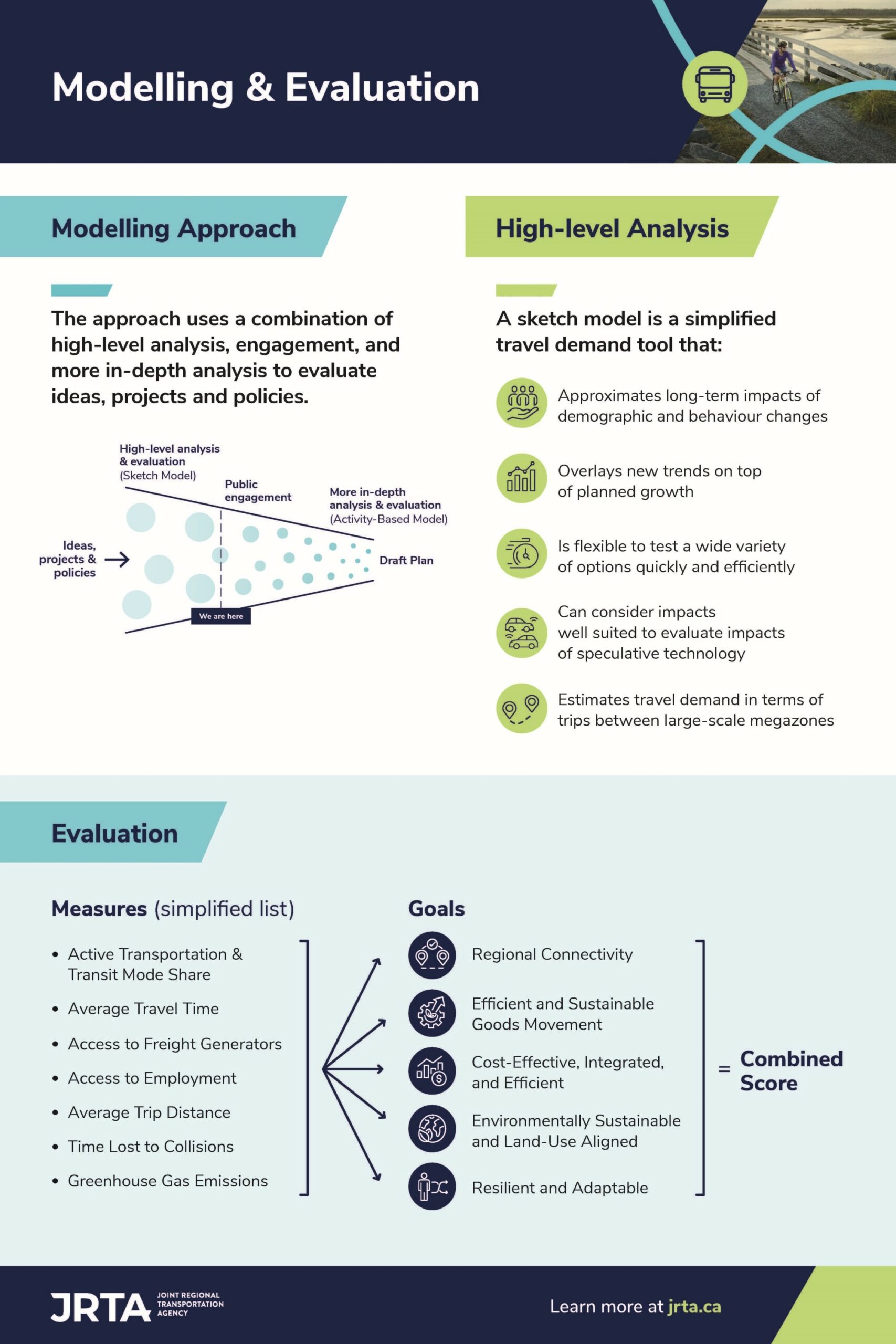
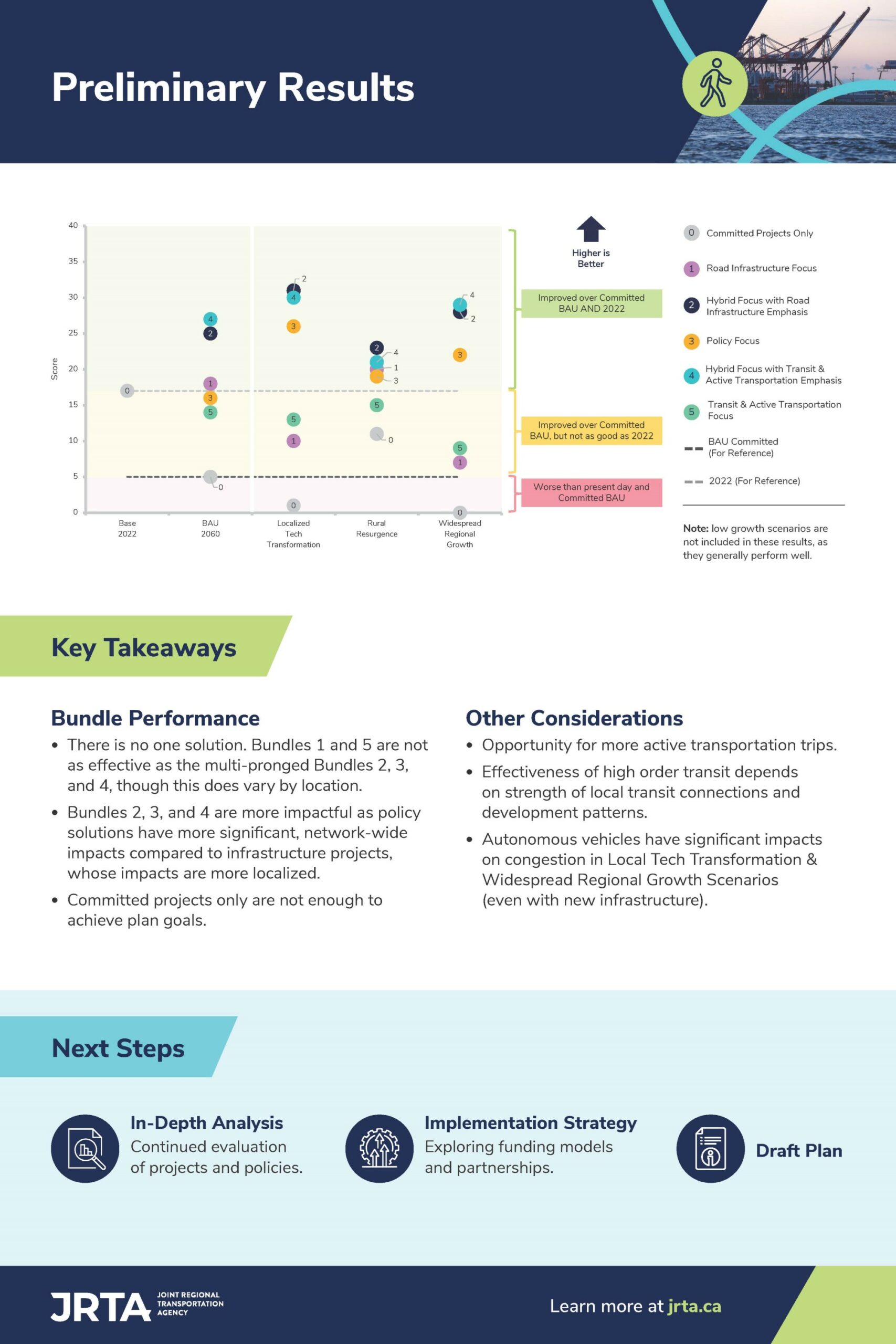
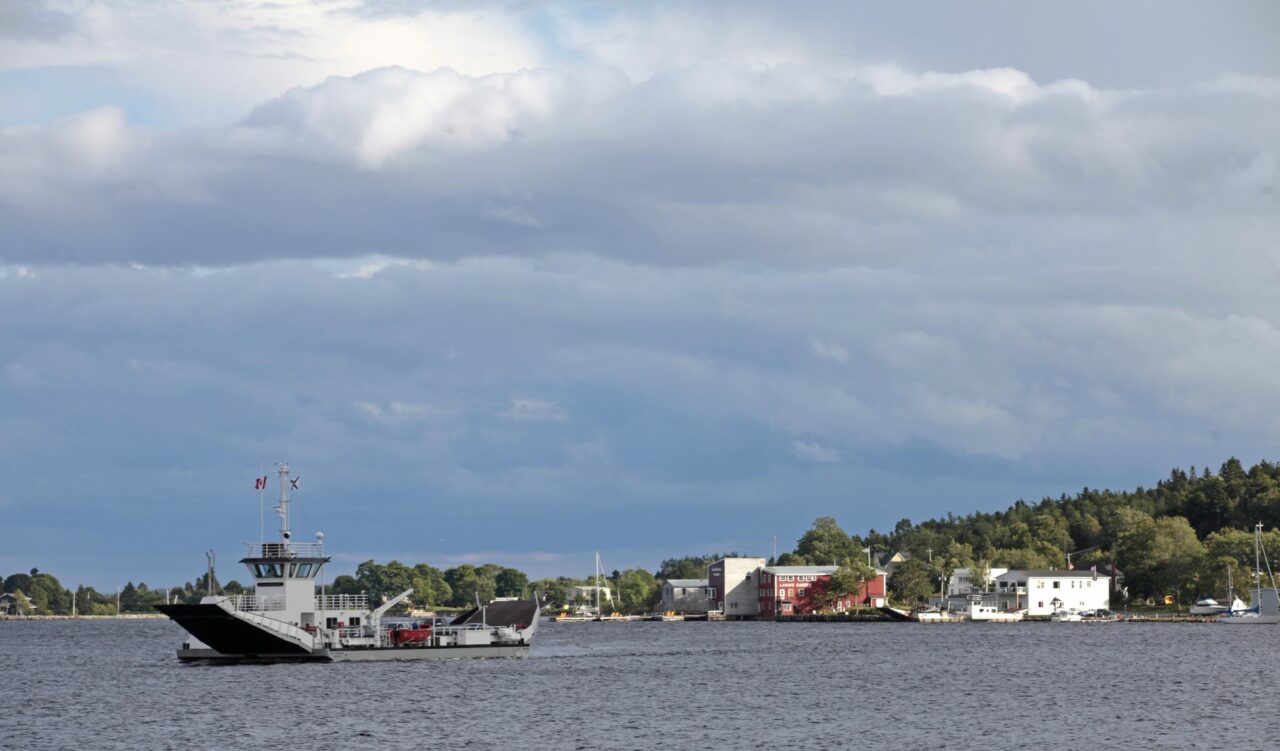
Virtual Information Session
Watch our virtual information session, held February 13, 2024.
In this session, JRTA staff and the consultancy team provide an update on work to date on the Regional Transportation Plan and answer questions from attendees.
